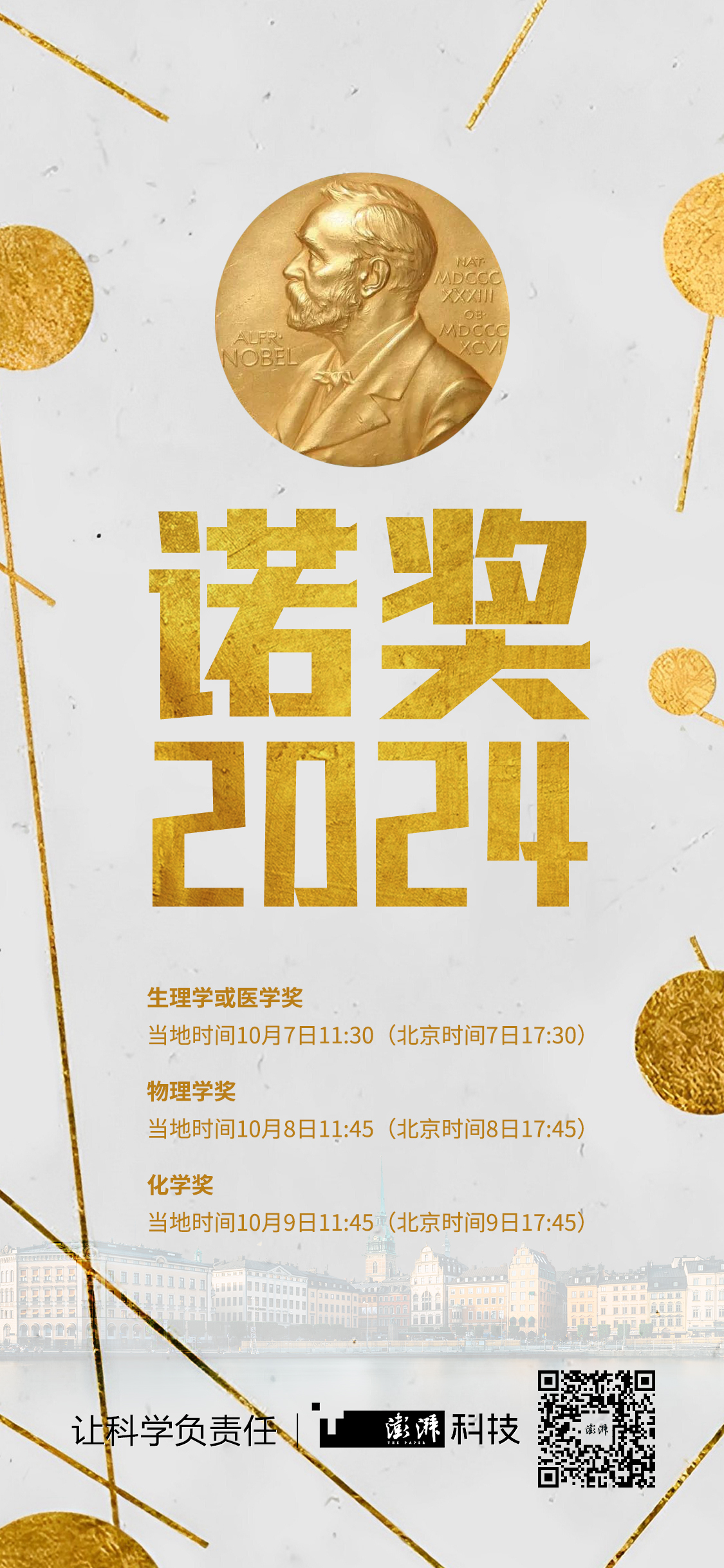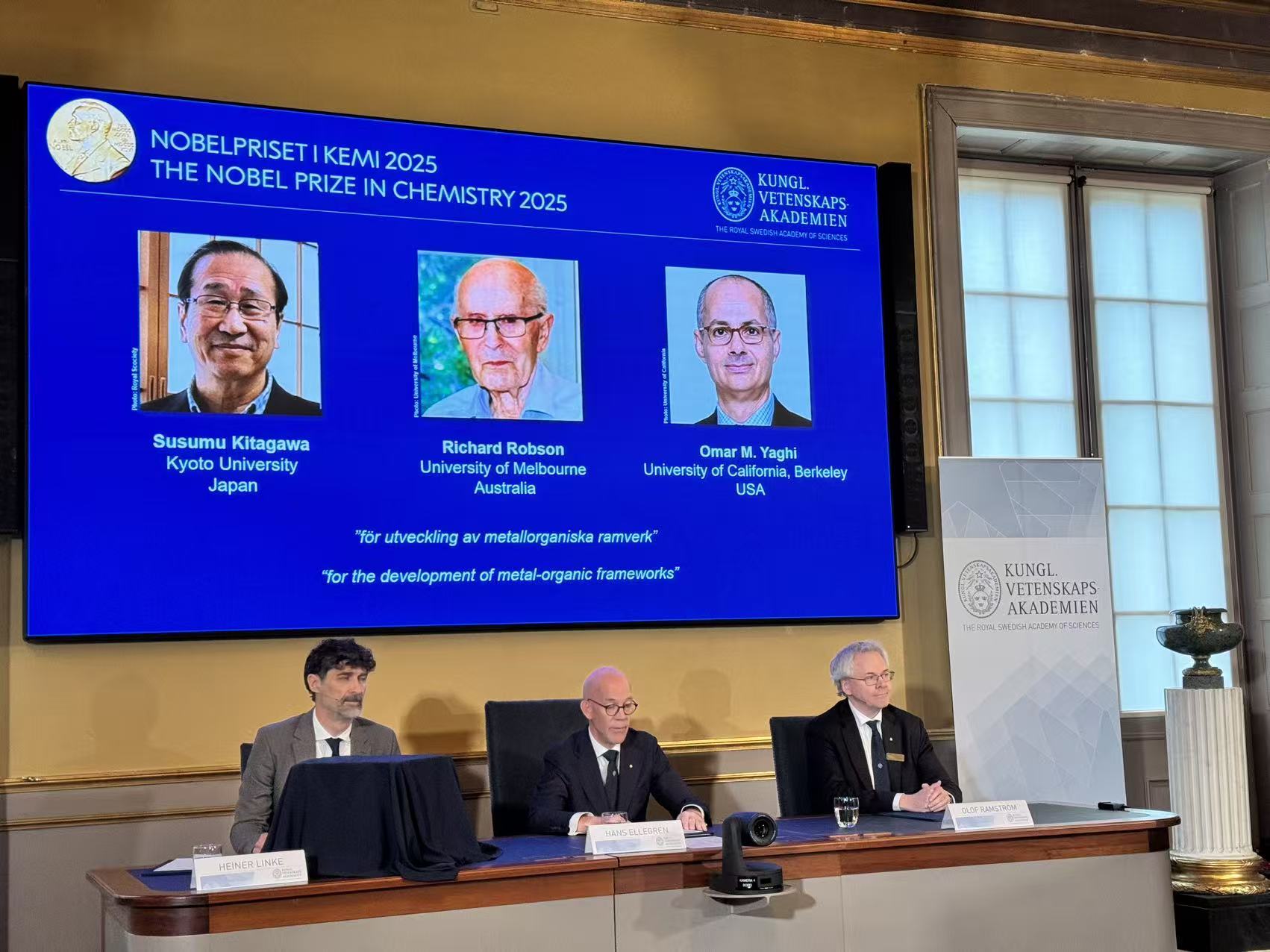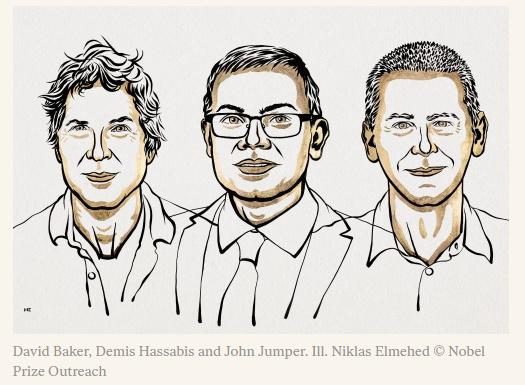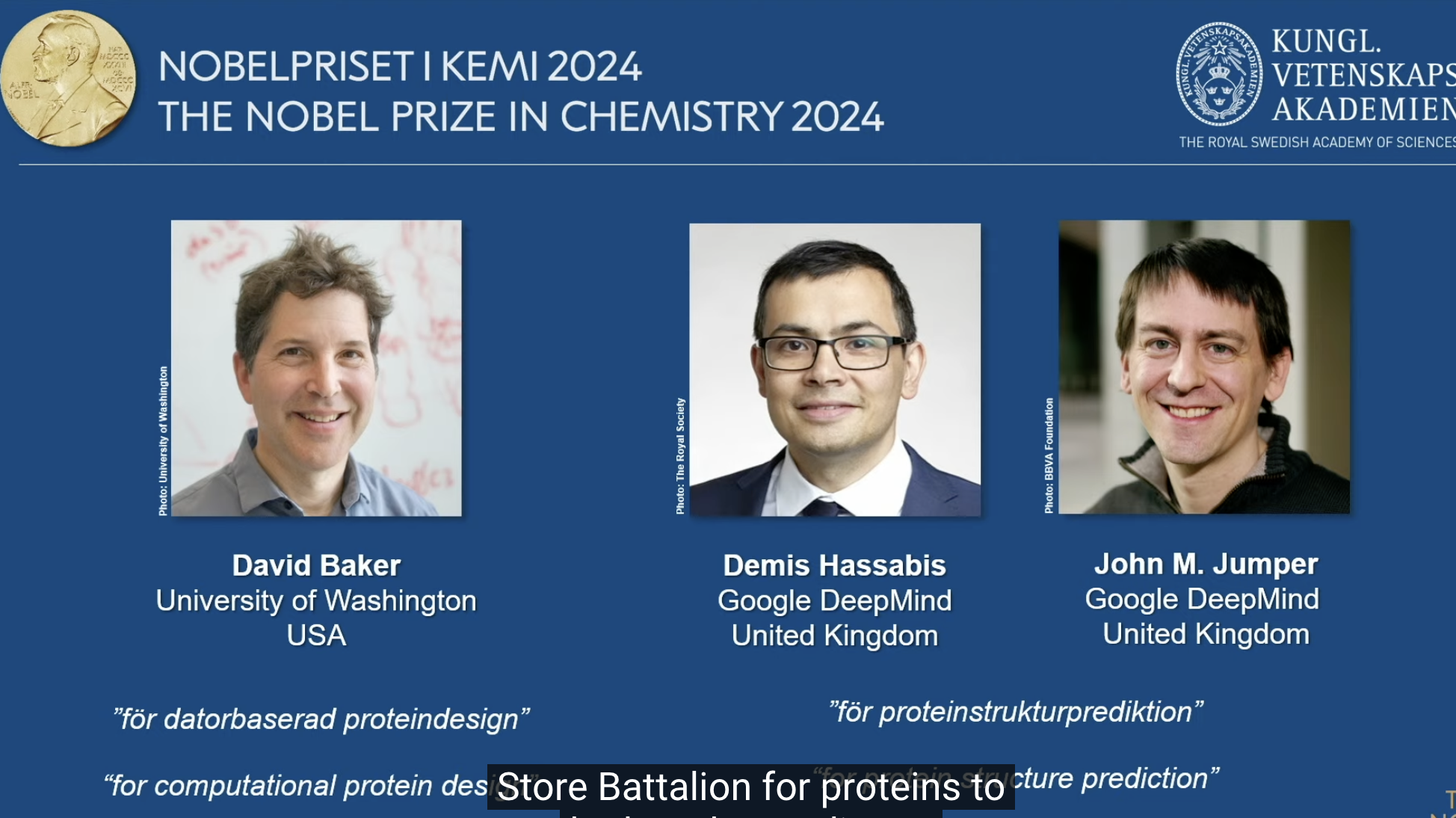

On October 9, 2023, at 11:45 local time in Sweden, which is 17:45 Beijing time, the Nobel Prize in Chemistry will be announced in Stockholm, the capital of Sweden, by the Royal Swedish Academy of Sciences.
Another Chinese scientist has emerged as a strong contender for the crown. American-born Chinese scientist Wang Qihui has received numerous international awards, including the Wolf Prize in Chemistry, for developing a method for the automated synthesis of polysaccharide molecules.
Additionally, scientists like John Jumper, who developed a groundbreaking protein structure prediction tool, are also seen as potential winners of the Nobel Prize in Chemistry.
Biology, Materials, Energy: The Cutting Edge of Chemistry
Over the past decade, the Nobel Prize in Chemistry has mainly recognized significant discoveries and technological innovations in the chemical field. These research outcomes not only advance the development of chemical sciences but have also made far-reaching impacts in various interdisciplinary fields, such as CRISPR-Cas9 gene-editing technology (2020) and the development of lithium-ion batteries (2019).
The 2023 Nobel Prize in Chemistry was awarded to Moungi G. Bawendi, Louis E. Brus, and Alexei I. Ekimov for their contributions to the discovery and synthesis of quantum dots. Quantum dots are tiny nanoparticles whose electronic structure changes with size, making them suitable for use in television displays and LED lighting, as well as in surgical removal of tumor tissue.
This year's Nobel Prize in Chemistry could also see contenders emerging from these interdisciplinary fields, such as molecular dynamics simulations, which have significantly influenced material sciences. Theoretical physicists Roberto Car and Michele Parrinello from Italy may be awarded for their development of the Car-Parrinello molecular dynamics (CPMD) method, which combines quantum mechanics with classical molecular dynamics to reveal the processes of chemical reactions and material behavior at the atomic level.
Candidates from the life sciences also consistently appear among the contenders for the Nobel Prize in Chemistry. Veteran scholars like David Baker, who uses machine learning to predict protein structures, as well as Google scientists John Jumper and Demis Hassabis, who developed the AlphaFold protein structure prediction tool, have been highly favored for the Nobel Prize in recent years. Their contributions address the complex folding of proteins in three-dimensional space, impacting protein function, and their machine learning techniques have solved prediction challenges, earning multiple life science awards.
Catalysis remains a perennial field in traditional chemistry and is closely tied to applications in energy and the environment. Kazunari Domen from the University of Tokyo has become a strong candidate due to his critical work on photocatalysts. His laboratory produced photocatalysts in a significant 2020 paper published in *Nature*, allowing light to be nearly perfectly converted into hydrogen, paving the way for sustainable and economically feasible hydrogen production.
Many media sources have cited a survey published by *Chemistry Views*, which forecasted the 2024 Nobel Prize in Chemistry. The frontrunner in votes was American-born Chinese scientist Wang Qihui, who was born in Taiwan in 1948, served as the president of the Academia Sinica in Taiwan, and developed a chemical method for the automated synthesis of polysaccharide molecules, along with large-scale synthesis of complex polysaccharides and glycoproteins using enzymatic technology. His research has received several international awards in recent years, including the Wolf Prize in Chemistry.
Notably, the survey received 1973 total votes, with nearly 600 individuals nominated by the readers, and Wang Qihui garnered 206 votes.
11 Million Swedish Krona
The Nobel Prize in Chemistry, established in 1895 based on the will of Alfred Bernhard Nobel, is one of five Nobel Prizes awarded since 1901 by the Royal Swedish Academy of Sciences to recognize "those who, during the preceding year, shall have conferred the greatest benefit to mankind in the field of Chemistry." The award is presented at the annual Nobel Prize ceremony in Stockholm on December 10, the anniversary of Nobel’s death.
Nominations for the Nobel Prize in Chemistry are by invitation only. Between September and October, the Nobel Chemistry Committee sends out invitations to nominate candidates to thousands of specially selected university professors and other scholars worldwide. Members of the Royal Swedish Academy of Sciences and Nobel Prize winners may also propose candidates, but self-nomination is not permitted. The names and associated information of nominators are only made public after 50 years.
The Nobel Chemistry Committee, composed of five members, is responsible for screening nominations and selecting final candidates. They will assess preliminary candidates and submit a recommendation report to the Academy between March and August. These recommendations will be discussed at two meetings of the Academy’s Chemistry Section, and the winners will be selected by voting in October.
Marie Curie is one of only eight women among the 192 laureates of the Nobel Prize in Chemistry. Her family is the most successful family in Nobel Prize history. The Curie couple was awarded the Nobel Prize in Physics in 1903, and Marie Curie herself received the Nobel Prize in Chemistry again in 1911. Their eldest daughter, Irène Joliot-Curie, and her husband, Frédéric Joliot, won the Nobel Prize in Chemistry in 1935.
It is reported that the prize for the 2024 Nobel Prize in Chemistry is 11 million Swedish Krona, approximately equivalent to 7.5 million RMB.
The Last Decade of Nobel Prizes in Chemistry
The 2023 Nobel Prize in Chemistry was awarded to Moungi G. Bawendi from MIT, Louis E. Brus from Columbia University, and Alexei Ekimov, former chief scientist at a U.S. nanocrystal technology company, for their contributions to the discovery and synthesis of quantum dots.
The 2022 Nobel Prize in Chemistry was awarded to Carolyn R. Bertozzi, Morten Meldal, and K. Barry Sharpless for their contributions to click chemistry and bioorthogonal chemistry research.
The 2021 Nobel Prize in Chemistry was awarded to Benjamin List and David MacMillan for their contributions to the development of asymmetric organic catalysis.
The 2020 Nobel Prize in Chemistry was awarded to Emmanuelle Charpentier and Jennifer A. Doudna for their contributions to the development of genome editing methods.
The 2019 Nobel Prize in Chemistry was awarded to John B. Goodenough, M. Stanley Whittingham, and Akira Yoshino for their contributions to the field of lithium-ion batteries.
The 2018 Nobel Prize in Chemistry was awarded to Frances H. Arnold, George P. Smith, and Gregory P. Winter for their contributions to “directed evolution of enzymes” and the “phage display technology for peptides and antibodies.”
The 2017 Nobel Prize in Chemistry was awarded to Jacques Dubochet, Joachim Frank, and Richard Henderson for their development of cryo-electron microscopy techniques.
The 2016 Nobel Prize in Chemistry was awarded to Jean-Pierre Sauvage, Sir J. Fraser Stoddart, and Bernard L. Feringa for their contributions to the design and synthesis of molecular machines.
The 2015 Nobel Prize in Chemistry was awarded to Tomas Lindahl, Paul Modrich, and Aziz Sancar for their contributions to the research of gene repair mechanisms.
The 2014 Nobel Prize in Chemistry was awarded to Eric Betzig, William E. Moerner, and Stefan W. Hell for their contributions to the development of super-resolution fluorescence microscopy.
References:
1. https://clarivate.com/citation-laureates/winners/
2. https://www.chemistryviews.org/whos-next-nobel-prize-in-chemistry-2024-voting-results-october-7/
3. https://www.nobelprize.org/prizes/facts/facts-on-the-nobel-prize-in-chemistry/


